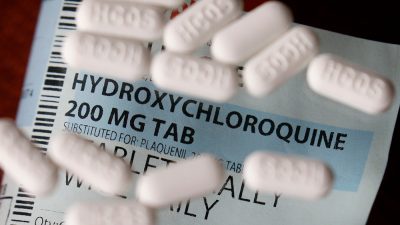
By; Jjunju Francis
26th May 2020
In our Moment with COVID-19 Sponsored by Justice and Peace Commission of the Uganda Episcopal Conference with support from CAFOD,
On March 22, 2020 Uganda confirmed her first COVID-19 case of A 36-year-old Ugandan male who arrived from Dubai aboard Ethiopian Airlines presented symptoms of high fever and poor appetite, according to authorities.
Around April 9th the director of health services Dr. Henry Mwebesa revealed that Uganda was using hydroxychloroquine as a treatment drug for COVID-19 treatment at three health facilities, Mulago, Entebee and Hoima.
The drug is an antimalarial used to treat mild forms of malaria, but can also be used to treat lupus and arthritis.
Health Minister Dr Jane Ruth Aceng told the press that even if hydroxychloroquine is still undergoing testing, it has the ability to stop the spread of the disease by stabilizing red blood cells so that uptake of oxygen by hemoglobin is promoted.
However, today May 26th, The World Health Organisation (WHO) has halted the use of Hydroxychloroquine and Chloroquine in its solidarity drug trial after an observational study published in the Lancet found the drugs to be ineffective in treating the Coronavirus (COVID-19).
According to the authors of the report, it was discovered that patients who used the drug alone or in combination of an antibiotic had higher mortality rates.
Hydroxychloroquine and Chloroquine were part of four drugs being studied by WHO in their solidarity trial taking place in over 17 countries. The other drugs remedesvir and Lopinavir were the other drugs.
Dr Tedros Adhanom Ghebreyesus, the director general of WHO says they have decided to halt the use of the drugs as a review of evidence on the drugs takes place.
Next:
Previous:




